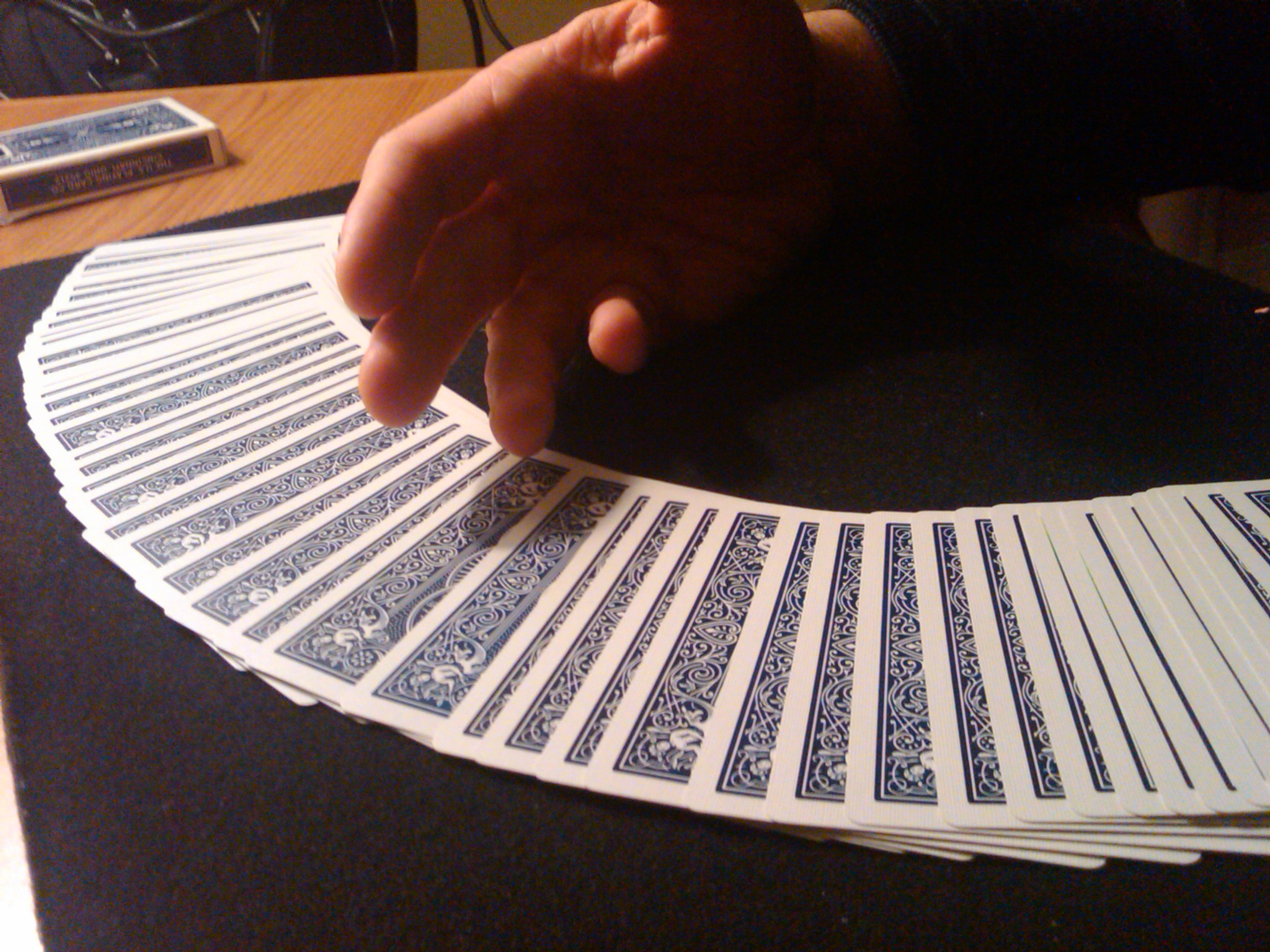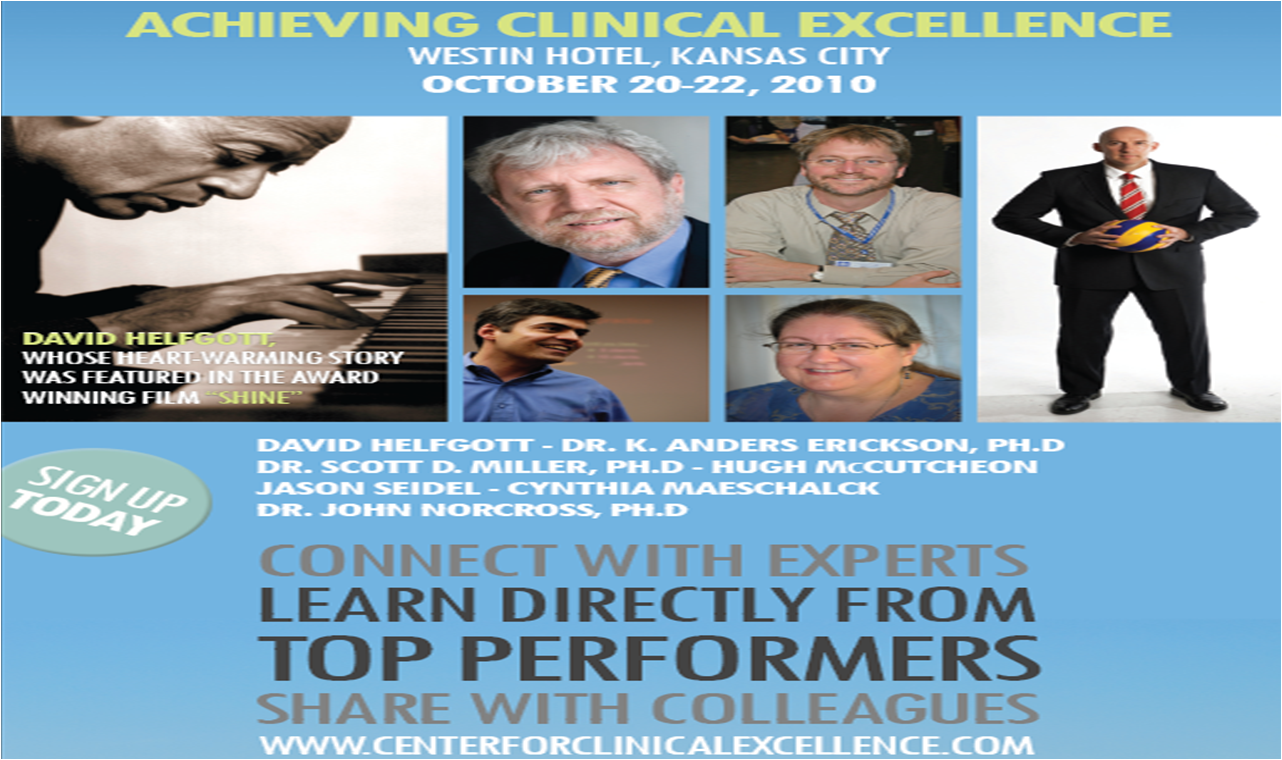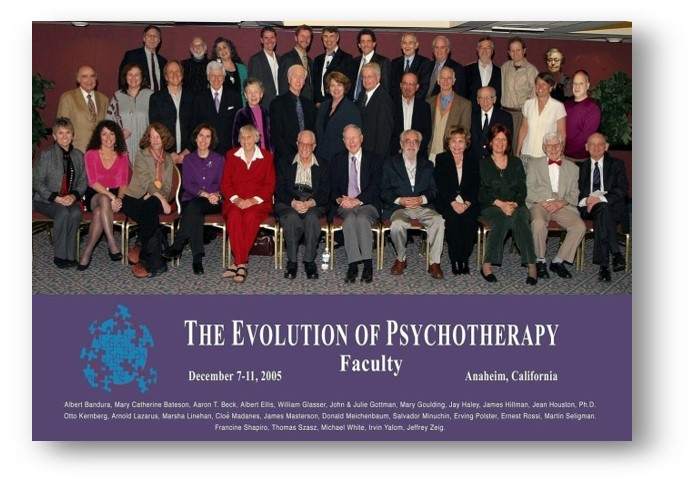Last week, I received an email from David Claud. I’ve known Dave for the better part of a decade, having met–I believe–at a Ericksonian Conference in Florida where he lives and works. He and the crew at the Center for Family Service in Palm Beach County figure prominently in the history of routine outcome measure and feedback. After hearing me speak, Dave took the measures back to the center and, together with the staff, became one of the first agencies in the country to formally adopt and use the ORS and SRS. Additionally, data gathered at CFS was used in some of the initial validation studies of the measures. Finally, their own research, cited in the second edition of The Heart and Soul of Change document dramatic improvements in outcome as well as decreased lengths of stay, cancellation and no show rates (40, 40, and 25% respectively).
Anyway, in his email, Dave included a link to a recent article by Ann Hulbert in Slate magazine. I’m lucky to have friends like Dave and others who keep me informed and up-to-date. The title of the piece certainly got my attention: “The Dark Side of the New Theories of Success: What the New Success Books Don’t tell you about Superachievement.”
As readers of my blog know, I’ve been pouring through the literature on excellence over this last year in an attempt to understand why some clinicians achieve reliably better outcomes than others. I first wrote about our findings in an article titled, “Supershrinks: Learning from the Field’s Most Effective Practitioners” that appeared in the Psychotherapy Networker. Since then, I’ve continued to work and research, together with senior associates at the International Center for Clinical Excellence, to deepen and refine the “steps to clinical excellence” that any therapist could follow to improve performance.
Alas, I’m not alone in my interest in the literature on expertise. A number of books, starting with Gladwell’s delightfully engaging Outliers, have appeared in the last year or so on the subject, including: The Talent Code, Bounce: The Science of Success
, The Genius in All of Us: Why Everything You’ve Been Told About Genetics, Talent, and IQ Is Wrong
and my personal favorite
Talent Is Overrated: What Really Separates World-Class Performers from Everybody Else
. The appearance of so many books is interesting. With few exceptions (i.e., sports psychology), K. Anders Erickson and colleagues labored in viritual academic obscurity for decades formulating hypotheses, conducting research and assembling evidence. And then suddenly: boom! EVERYBODY is talking about their work.
Always wanting to “hear” both sides of the story, I immediately clicked on the link in Dave’s email and read the article. I was dumbfounded. Hulbert’s gripe about the recent spate of books is in fact the central point of each: achieving superior performance in any field is bloody hard work. “They don’t always do realistic justice to the grunt work they champion,” whines Hulbert, tending instead to, “gloss over the sweaty specifics….distracting us from how arduous, tedious, and dependent on adult pushiness it can be…[and] glamorizing its intensity.”
My response: “Oh, contraire mon fraire!”
All of the books and research studies point to the years of dedicated and painstaking work involved in achieving world class levels of performance across a variety of domains (sports, music, medicine, computer programming, and psychology). K. Ander’s Erickson–who will, by the way, be one of the keynote presenters at the upcoming “Achieving Clinical Excellence” conference–is fond of saying, “Unlike play, deliberate practice is not inherently motivating; and unlike work, it does not lead to immediate social and monetary rewards…and actually generates costs…”. Little wonder few of us–myself included–engage in it on any regular basis.
The question that begs an answer is, “why would anyone do it?” Consider the brief video clip below:
Impressive, huh? I can’t imagine the amount of time it must have taken to master such a performance. No camera tricks. Just plain old fashioned trial-and-error, practice, and hard work.
We are finding the same pattern among top performing therapists. In short, they have an “error-centric” approach to practice–constantly looking for what they do that doesn’t work and taking time to plan, identify and try alternatives, and then reflect and refine their process-improvement efforts. Such activity is cognitively taxing and, in most instances, not immediately rewarding (financially or otherwise). But there is more to the story. It turns out that superior performance is not a matter of working harder. Most of us work hard at our jobs. Rather, becoming a better clinician is about working smarter. Here, the literature on expertise provides clear, empirically-supported guidelines.
If you’re feeling inspired, why not pick up one of the books? Also, be sure and join us at the upcoming “Achieving Clinical Excellence” conference where the ideas and steps will be discussed in detail.







